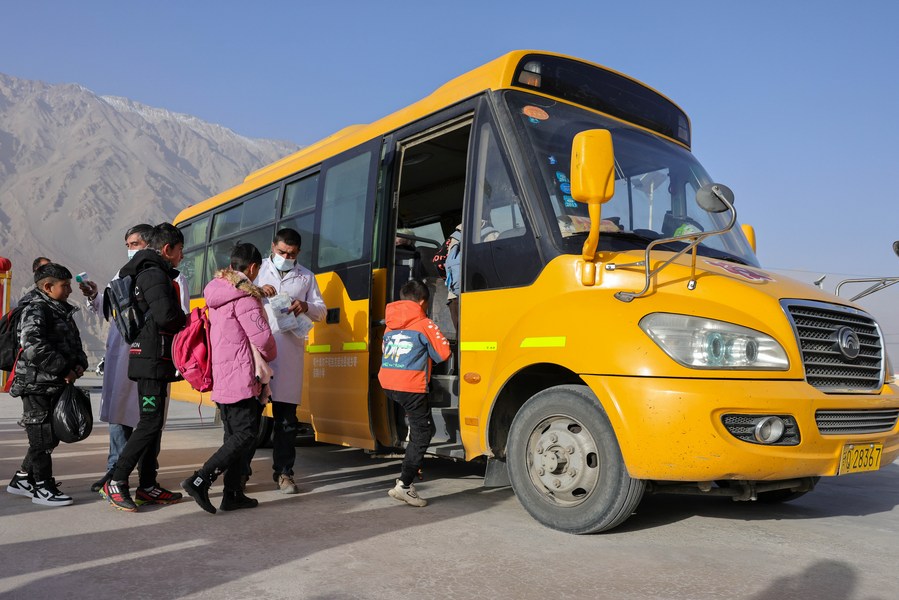Better education gives wings to children in Xinjiang's remote areas


URUMQI -- One day ahead of the spring semester, 11-year-old Ayizmal Mirzjan and her friends left their home village deep in the mountains of the Pamir Plateau for school.
It was the first time that the students boarded a standard yellow school bus, the same as the ones they saw in movies. After a six-hour journey, the bus took the little passengers to their boarding school at the county seat.
Easy as it seems today, the 250-km trip used to take several days on a horse, camel or motorcycle.
Upon the departure, Ayizmal Mirzjan's cousin Zyatm Mayir took a selfie by the school bus and posted the picture on social media. "If only I could be as young as Ayizmal Mirzjan and go to school by such a comfortable school bus," she wrote on her WeChat account.
School on horseback
Ayizmal Mirzjan's village Reskam, which means "land with ores" in the Tajik language, is a border village located in the southwesternmost part of the Taxkorgan Tajik autonomous county, Northwest China's Xinjiang Uygur autonomous region.
At an altitude of over 3,000 meters, with several major rivers and mountains stretching through, the village used to see its residents' settlements scattered in a dozen of relatively inhabitable valleys.
The complex landscape had restrained the accessibility to education for the children of Reskam for generations, including elder members of Ayizmal Mirzjan's family.
Jamlhan Yantonghan is a retired teacher in Reskam. Having worked in the village for over 30 years, Jamlhan Yantonghan called himself a mobile "primary school on horseback."
There was a time when he had to travel on a horse all across the vast pasture, visited the scattered households from door to door, found as many students as he could, and gathered them for class. Their classroom could be in a yurt, on a grassland, or even by a cliff.
It was not until the 1980s that the village established a proper school with classrooms and dormitories, Jamlhan Yantonghan recalled.
The school ignited a passion for education among Reskam's students. However, it soon occurred to the villagers that access to quality and modern education still seemed out of reach in such a remote village.
In 2008, Taxkorgan adopted a school policy whereby all the students enjoy free education for up to 15 years from kindergarten to high school, and students from fourth to sixth grade can attend the boarding school in the county seat.


















